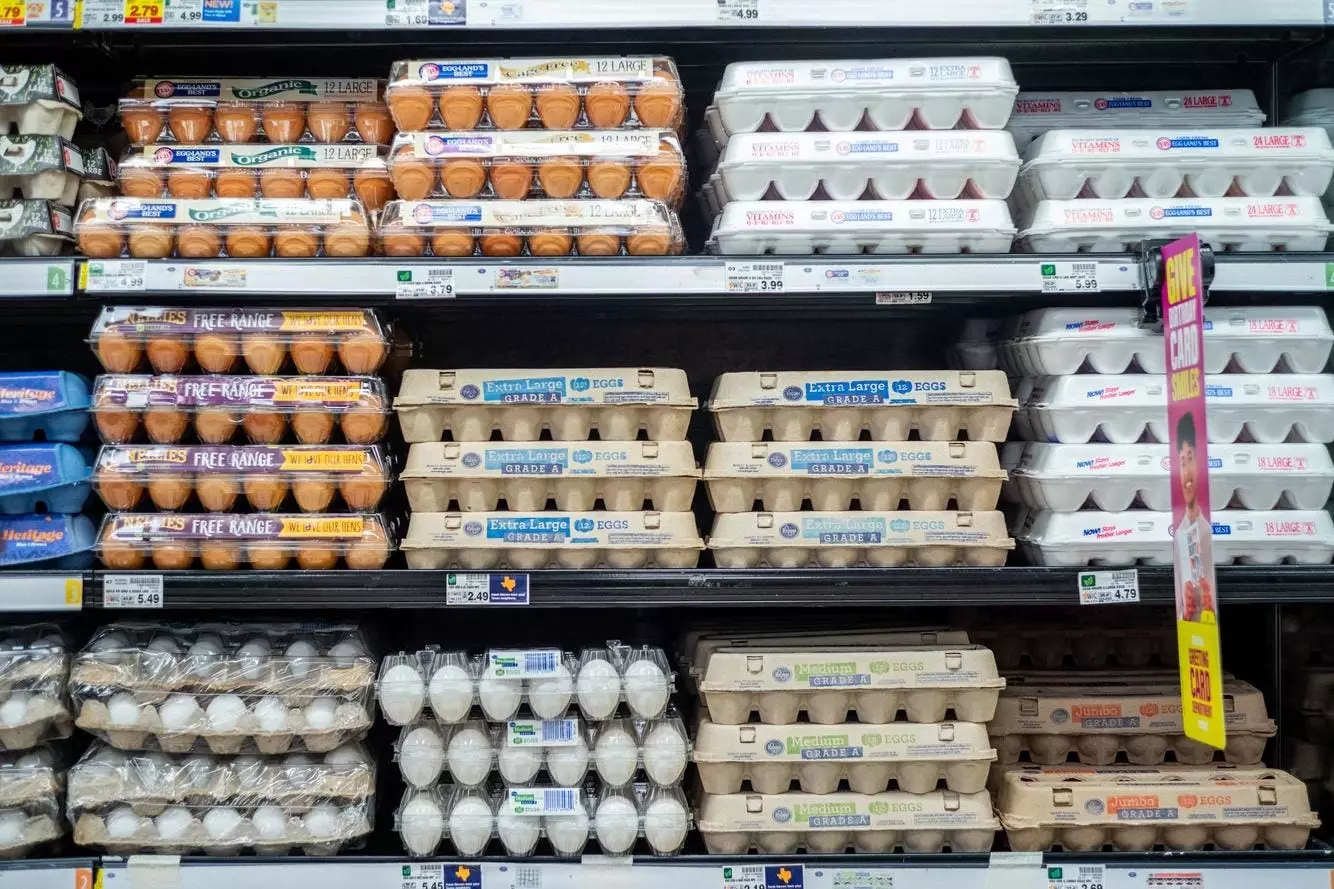Eggs have always occupied a prominent place in the American household, cherished for their versatility and affordability. For generations, these small oval wonders have been the go-to protein for breakfast and beyond. However, as we move into 2025, significant economic pressures—including rampant inflation, supply chain disruptions, and evolving consumer behavior—are challenging the fundamental perception of eggs as an everyday staple. A striking 53% increase in egg prices compared to the previous year not only emphasizes economic realities but also showcases a substantial cultural shift in how people approach food choices.
Recent reports from the Consumer Price Index (CPI) underscore the shocking reality confronting consumers. Grocery shoppers, already feeling the pinch at checkout, are witnessing eggs become increasingly costly. This price surge is more than just an economic statistic—it is a catalyst prompting a re-evaluation of food habits. The sudden spike in prices leads many to trade down to store brands, seek bulk purchases, or even eliminate eggs from their diets altogether in favor of alternatives such as oatmeal, plant-based substitutes, or yogurt.
Interestingly, this environmental shift has given rise to a growing segment of consumers willing to invest in premium egg brands. The notion of eggs as a commodity has begun to transform, as some individuals opt for organic or free-range options, viewing them less as pantry staples and more as investments in quality nutrition. This trend reflects a broader societal movement toward valuing sourcing and production standards, often driven by younger generations who prioritize quality over quantity.
The dilemma extends beyond mere pricing; availability is also a pressing concern. Recent data reveals that 55% of consumers have reported empty shelves in their local grocery stores when seeking eggs. This scarcity prompts drastic shifts in breakfast choices, pushing individuals toward alternative proteins, grains, or even the convenience of takeout meals. The classic image of a breakfast table adorned with eggs and bacon is evolving as people adapt to these limitations, showcasing resilience and innovation in the kitchen.
Moreover, even for consumers who can find eggs, the changing attitudes surrounding them serve as a litmus test for broader economic pressures. Some shoppers, particularly from Gen Z and Millennial demographics, are willing to pay a premium for eggs, championing the cause of sustainable farming practices and ethical production standards. In contrast, others cling to budget-friendly options, suggesting a deepening divide in consumer priorities based on financial circumstances and personal values.
The surge in egg prices is not an isolated phenomenon; rather, it mirrors historical trends involving other kitchen staples such as beef, butter, and bread, which have all transitioned from affordable essentials to luxury items over time. If current trends continue, we may be witnessing the transformation of eggs from a culinary foundation to a coveted luxury. The outcome will inevitably lead to new consumer behaviors, including bulk purchases or alternative dietary strategies, as people adjust their habits to forecasted shortages and rising costs.
Consider the implications for purchasing patterns across different grocery chains: while store brands dominate the market, the willingness of specific consumer groups—such as Hispanic and urban shoppers—to invest significantly in premium options could stimulate a further division in the market. On one end, shoppers might find new allegiance to discount stores like Aldi, while others could gravitate toward higher-end retailers willing to offer greater quality assurance.
As we navigate these turbulent economic waters in 2025, the role of eggs in American kitchens is undeniably changing. The intersection of rising prices, availability issues, and shifting consumer values is reshaping not just how we purchase eggs, but also how we conceptualize them within our diets. With some consumers opting to indulge in higher-quality offerings while others grapple with the decision to forgo eggs altogether, we are witnessing a fascinating evolution regarding this beloved food item. The future remains uncertain, but one thing is clear: how we buy, cook, and cherish eggs may never return to what it once was.

